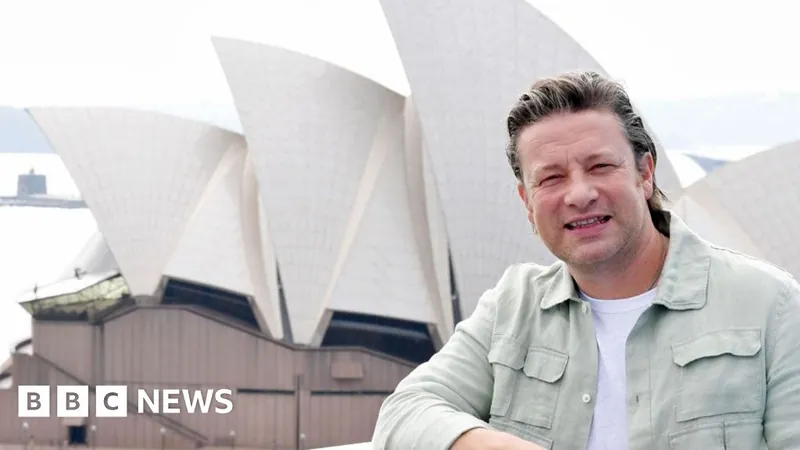
Jamie Oliver's Children's Book Controversy: Outcry Over Indigenous Stereotyping Leads to Withdrawal
2024-11-11
Author: Lok
Introduction
In a significant backlash, celebrity chef Jamie Oliver has removed his new children's book, *Billy and the Epic Escape*, from publication following widespread criticism for its portrayal of Indigenous Australians. The 400-page fantasy tale centers on an Aboriginal girl named Ruby, who possesses mystical powers but lives in foster care. The story takes a dark turn when she is abducted from her home in central Australia, a plot element that many have deemed insensitive.
Reactions from Indigenous Leaders
First Nations leaders have voiced strong objections, claiming that the book perpetuates "harmful stereotypes" and trivializes the complex and painful legacy of the Stolen Generations—Indigenous children forcibly taken from their families under brutal government assimilation policies that persisted until the 1970s.
Jamie Oliver's Response
Oliver expressed his distress over the controversy, stating, "It was never my intention to misinterpret this deeply painful issue." His statement reflects a sincere attempt to address the hurt caused by his work, especially during his promotional tour for a new cookbook in Australia.
Publisher's Acknowledgment of Oversight
Amid the uproar, Penguin Random House UK acknowledged an "editorial oversight" that resulted in a lack of consultation with Indigenous Australians during the book's development—a crucial step that Oliver had envisioned.
Criticism of Language and Cultural Representation
Critics, including Sharon Davis from the First Nations educational body Natsiec, criticized the book not only for language inaccuracies but also for simplifying Ruby's identity and background, reducing complex belief systems to mere "magic." Davis articulated that such portrayals dehumanize both the character and, by extension, Aboriginal and Torres Strait Islander peoples.
Historical Context and Impact
Furthermore, some have noted that the story's focus on an abduction plot is particularly hurtful, given the historical context of Indigenous child removal in Australia. Statistics around the ongoing challenges faced by Indigenous communities are alarming: Aboriginal and Torres Strait Islander children remain ten times more likely than non-Indigenous children to be removed from their families and placed in foster care or other system.
Linguistic Errors and Cultural Disregard
Critics also highlighted significant linguistic errors in the book, pointing out that Ruby, who is from Mparntwe (commonly known as Alice Springs), uses terms drawn from the Gamilaraay language, which is associated with different regions in New South Wales and Queensland.
Withdrawal of the Book
In response to the backlash, Oliver and his publishing team have decided to withdraw *Billy and the Epic Escape* from sale worldwide. Penguin Random House UK admitted that their publishing standards had not met the necessary benchmarks in this instance, promising to learn from the experience.
Conclusion and Future Implications
Natsiec, in a statement acknowledging the swift action taken to remove the book, underscored the importance of sensitivity in storytelling, particularly regarding historical contexts that continue to resonate within Indigenous communities today. The incident opens a deeper conversation about representation and cultural sensitivity in literature, marking a pivotal moment for authors and publishers alike as they navigate the intricate tapestry of Indigenous identity and history.
Can this controversy lead to more responsible and informed storytelling in the future? That's a question many are now asking.


 Brasil (PT)
Brasil (PT)
 Canada (EN)
Canada (EN)
 Chile (ES)
Chile (ES)
 España (ES)
España (ES)
 France (FR)
France (FR)
 Hong Kong (EN)
Hong Kong (EN)
 Italia (IT)
Italia (IT)
 日本 (JA)
日本 (JA)
 Magyarország (HU)
Magyarország (HU)
 Norge (NO)
Norge (NO)
 Polska (PL)
Polska (PL)
 Schweiz (DE)
Schweiz (DE)
 Singapore (EN)
Singapore (EN)
 Sverige (SV)
Sverige (SV)
 Suomi (FI)
Suomi (FI)
 Türkiye (TR)
Türkiye (TR)